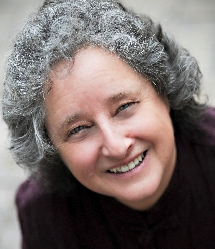
In a world where some people think of artists as having been “born talented” and destined to starve, how and why does someone decide to become one? Each of the artist/teachers who comprise the MTD faculty chose music, theatre, or dance as a career. All have their own stories about how and why they chose to pursue a career in the performing arts and about how they learned what they needed to know to pursue it. MTD department chair, Dr. Jackie Wiggins, shared some of her story with us.
Professor Wiggins has a very busy, high profile career in the field of music education. Her book Teaching for Musical Understanding (McGraw-Hill, 2001; CARMU, Oakland University, 2009) is used as a textbook in other institutions around the world. She continues to research and write, is widely published, and travels worldwide to make presentations, including invited keynotes on four continents. Her story reveals her early passion for music, the all-absorbing role it played in her life, and a glimpse at the kind of drive and dedication it takes to succeed in the arts.
MTD: Where did you grow up and how did you become interested in music?
JW: I was born and raised in New York City for all but four years when my family lived on Long Island. Those four years, from ages eight to twelve, were highly influential in my musical life because I had school music teachers for the first time. In school I learned to sing harmony and play clarinet, but I really wanted to learn piano. We had a piano but no one played it. When I was ten, my father bought himself an adult self-teaching book. I couldn't wait to get my hands on it and made my way to the back of the book in no time, hungry for more.
I started figuring things out by ear and could play songs I had learned in school with something that resembled chords. In school, we were rehearsing some elementary version of HMS Pinafore. I had figured out how to play "We Sail the Ocean Blue," but my chords were wrong. I was playing it on the school piano one day and the music teacher, Mrs. Boch, smiled and showed me how to play the missing dominant chord. That was the beginning of a very special relationship between Mrs. Boch and me. I began spending as much time as I could in her classroom. In many ways, I became an elementary general music teacher because of Mrs. Boch.
About the same time, I began studying piano with one of Judy Garland’s accompanists who, as it happened, lived around the corner from us. He did not know much about teaching a 10-year-old beginner, but it certainly was an adventure. I was able to figure out anything he put in front of me, so he chose things that he thought would be fun and interesting. It certainly was not a typical piano lesson experience, but it did help me learn to be a rather flexible musician.
MTD: What about secondary school?
JW: We moved back to NYC when I was in 7th grade and music was becoming more and more central in my life. At school I sang in the chorus and played clarinet in the band and orchestra. It was the early 60s, and two friends and I formed folk group. We taught ourselves to harmonize, made up arrangements, and were invited to perform as part of the school concert. The chorus staged The Mikado and I sang Yum-Yum. I took lessons on piano and clarinet, but more than anything, I wanted to be a singer. Living in NY, I had seen Broadway shows and absolutely aspired to do that for a living. My friends and I were accepted into the High School of Music and Art (M & A). At M & A, pianists had to study voice. Had to study voice! It was my dream come true. We studied Italian arias in 10th grade, German Lieder in 11th, and French songs in 12th. I really loved them.
MTD: Did you study voice privately as well?
JW: In my junior year, I began studying with Daniel Ferro, who was head of the voice department at Manhattan School of Music. Every Saturday, I took the subway to his studio on Central Park West. After my lesson, I often walked twenty-five blocks to the Lincoln Center library to borrow scores and records. I loved it. My friends and I traveled three hours a day to and from high school, taking two bus rides and eight subway trains daily. In school, I studied the regular academics (including higher level classes like calculus, physics, and 5th-year French) but also had daily classes in voice, music history, music theory, and chorus. I never took a lunch period. I usually had 9 classes a day. I was gone from home from 6:30 am until 5:30 pm, but after I did my homework and practiced, I would pull out the scores and records from the library and listen over and over. I wonder when I slept!
MTD: We know you are currently engaged in a research study of how professional musicians learned what they know. From your own story, it seems that drive and dedication are important parts of the picture.
JW: I had a wonderful childhood, but I also know I worked very hard. My friends and I were involved in everything and gave it our all. Life is what you make it. And music is a wonderful life to live.

